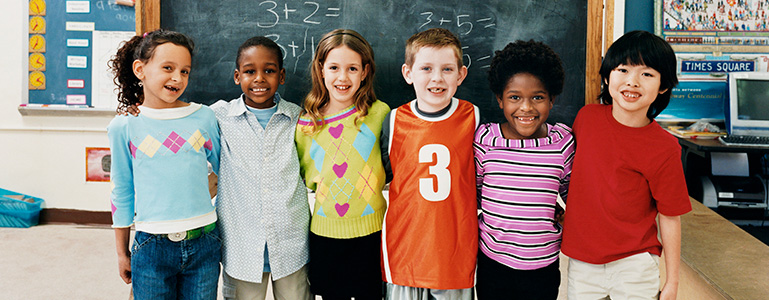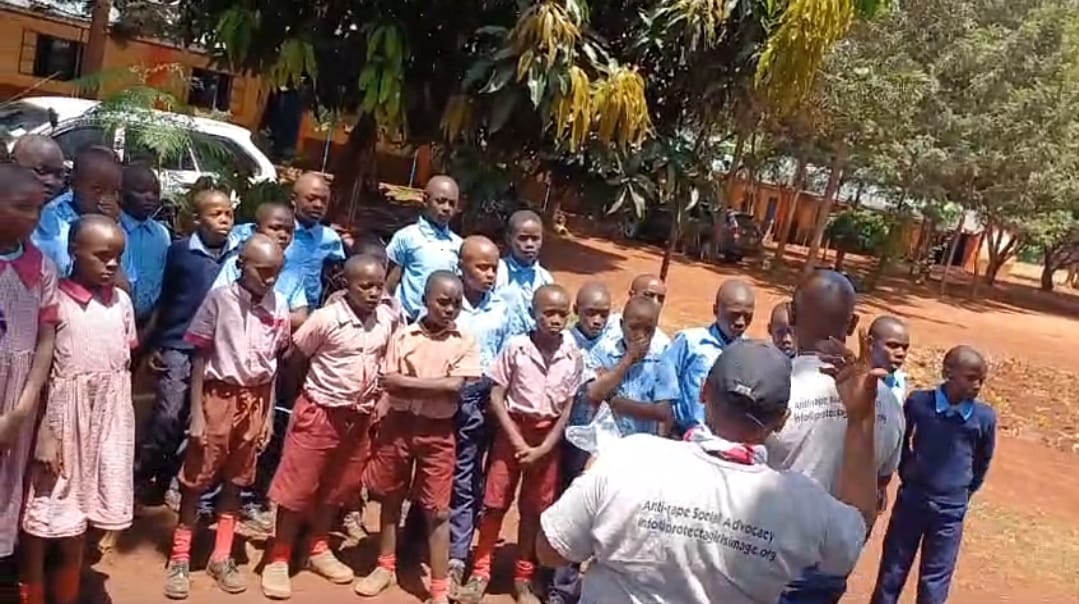Talking with kids about sexuality helps keep them healthy and makes your relationship stronger. There are many ways to start conversations about sex and sexuality, and it gets easier with time and practice.
Kids between the age of 5 to 8 need accurate and age-appropriate answers to their questions. The conversations you have now play a major role in helping your children develop healthy relationships as they grow. And showing your kids that you’re a trustworthy and nonjudgmental resource makes it easier to talk about more difficult topics when they’re older. It’s easier than it seems — just keep it simple and direct, look for teachable moments, and stick to having lots of small, casual conversations.

What should I keep in mind?
Kids have lots of questions. They need answers, but they don’t always need all the details. It’s important to be honest, accurate, and frank when answering your kids’ questions about sex, but that doesn’t mean you need to overwhelm them with lots of information. With younger kids, less is better — start with the simplest explanation, and only give them more details if they have other questions or seem really interested in what you’re talking about.
One way to guide the conversation is to find out what your child already knows or thinks, and what they’re really trying to find out. What seems like a straightforward question to adults could be different than what your kid actually wants to know.
For example, a child who asks, “Why do I have a penis?” might be wondering about why touching it feels good, or why their body looks different from their sister’s, or what part the penis plays in reproduction. To figure out what they’re really asking, you can say, “That’s a great question, what made you think of that?” or “Can you tell me what you already know about that?” or “What do you think the answer is?”
Talking with your kids about sexuality isn’t going to make them have sex earlier. Giving your kids age-appropriate information about sexuality won’t encourage unhealthy sexual development. In fact, research shows that children who talk with their parents and know more about this stuff are more likely to wait to have sex until they’re older and use birth control/condoms when they eventually do have sex.
You can answer their questions honestly while still explaining that sex is something only grownups do. For example, if they ask what the word sex means, you can say something like: “Sometimes when two grownups like each other, they want to kiss and touch each other’s bodies — especially their penis or vulva. What else do you want to know about?” At this age, kids might be fascinated with bodies and the concept of sex, but they usually just think it’s weird or gross.
Providing your kid with information that’s age-appropriate helps them develop a healthy attitude about this stuff as they grow up. It also makes it easier to talk with them about the more complicated aspects of sexual intimacy (like consent, safer sex, and healthy relationships) as they get older.
Plan to have lots of small, casual conversations and rely on teachable moments. Don’t worry if you haven’t started talking with your children about sexuality yet. It’s never too late. Just don’t try to catch up all at once. Many parents plan (or dread) “the big talk” for a long time, expecting to have one conversation that covers everything important all at once. But talking with children about sexuality works best as a lifelong conversation, so prepare to have many small conversations during their childhood, providing more information as they grow. Doing a little bit at a time makes it less overwhelming for both you and your kid.
Don’t stress too much about finding the perfect time to talk. Everyday life gives you lots of opportunities for talking about sexuality (like questions about their genitals during bath time, running into a pregnant neighbor, or seeing people talk about sex on TV). And they may hear stuff out in the world that makes them want to ask questions. These teachable moments pop up all the time, and help make your conversations easier and more natural.
How do I talk about sex with my kid?
The most important thing is being open, honest, and available when your kid wants to talk, and to encourage questions and learning when they’re ready. It’s normal for you to feel a little awkward during some of these talks, but remember that younger kids don’t always realize these topics are difficult for adults.
Having a negative reaction or refusing to answer sends the message that your child’s natural curiosity is bad, and that it’s not okay to come to you with questions — and this means they’ll seek out information from other sources like friends or the internet. So even if you feel flustered, try to keep calm and talk with them in a positive tone.
When talking to younger kids, it’s common for parents to frame sex only as “something grownups do when they want to have a baby.” Of course that is one big reason people have sex, and it’s good for your kids to understand how sex is related to pregnancy. But it’s okay and even good for kids to understand that grownups have sex for other reasons too, like for pleasure and to express love and feel closer to a partner.
It’s important for kids to know who the trusted adults are that they can come to with questions or concerns related to sexuality. On the flip side, teaching appropriate boundaries when it comes to talking about sex is important too. Let them know that while sex and bodies are natural and not shameful, they’re also private. This might mean not talking about this stuff at their friends’ houses because every house has different rules. This could also mean only talking about this stuff with adults you’ve both identified as trusted and safe. You can say something like, “I’m really glad you’re asking me these questions — you can ask me anything. Are there other people you think you could ask about this stuff if I wasn’t available?” What about your brother, Aunt Molly, or Dr. Jones? And who do we not talk to about private stuff?”
What do I do if I see my kid masturbating?
It’s super common for kids of all ages to touch their genitals. Most children figure out at an early age that their genitals are sensitive and touching them feels good.
How parents react to their kids touching themselves can send strong messages. Getting angry, slapping their hands away, or acting disgusted can cause shame and guilt that can negatively impact them as they grow older. It’s common to feel a little uncomfortable if you see your child masturbating, but try to stay calm and remember that it’s perfectly normal and healthy behavior.
While it’s important not to shame your child for touching their genitals, it’s also important to teach them healthy boundaries for themselves and others. Let them know that masturbation is private and not appropriate to do in front of other people. You can say, “I know that feels good and lots of people do it. But you should only touch yourself in private places — like your bedroom or the bathroom.”
What do I do if they walk in on me having sex?
Try not to freak out. It’s natural for you to be embarrassed, but ultimately it’s not harmful or damaging for your child to know that grownups have sex.
The best way to respond is to stay calm, be matter-of-fact, and talk with them about what happened later. In the moment, you can say something like, “We’re having private time. Can you please close the door and go play in your room?” It’s okay if you did happen to yell in the moment — but make sure you apologize later and explain that you were just startled, so your kid doesn’t feel like they did something horribly wrong.
When you talk later, start by asking them what they saw and if they have any questions. Younger kids might be worried that you were hurting each other or fighting, so reassure them that you’re all okay. They may be curious and have lots of questions, which is normal. A good basic message is that sex is a private thing that grownups do with each other to feel good together and express their love. You can explain that this kind of expression of love is different from the way parents and kids show affection. You can also talk about privacy and how they need to knock before coming into other people’s rooms.
How your child processes what happened depends on how old they are, how you react, and whether you’ve already had age-appropriate conversations about sex with them. Try to think of it as another opportunity to normalize sexuality and show that you’re willing to answer their questions.
READ MORE:
What should I teach my preschooler about sex and sexuality?
Top 7 things to teach your daughter now!

